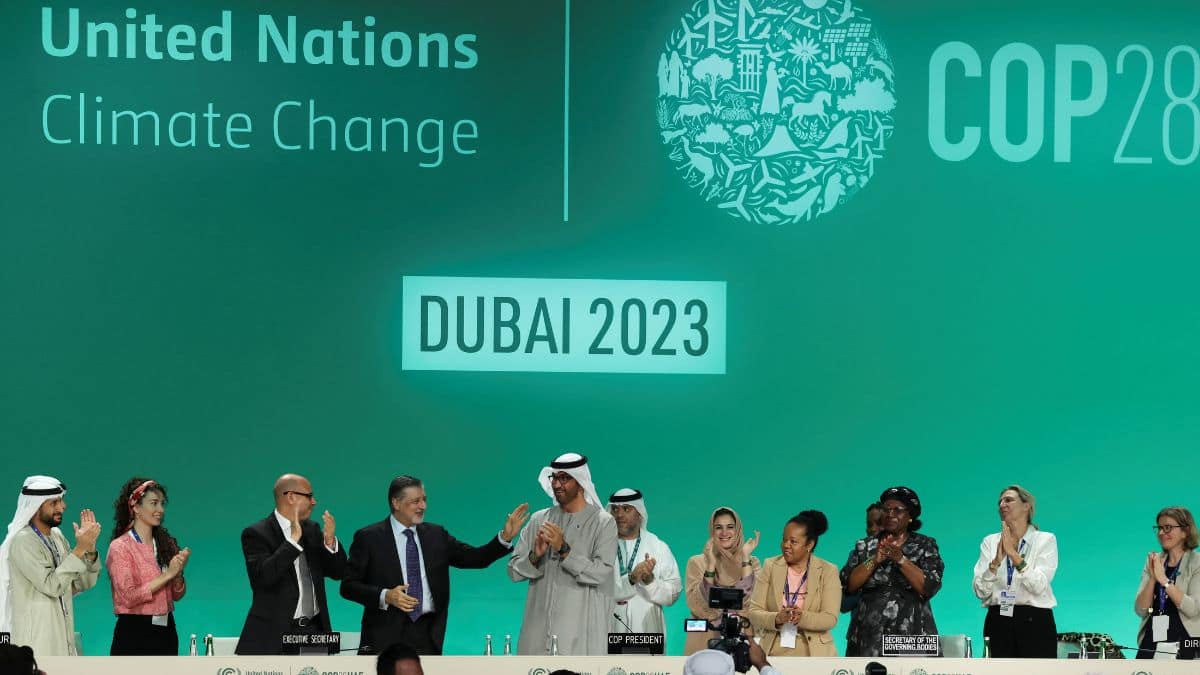COP28: Dubai’s UN Climate Summit secures landmark accord for global transition from fossil fuels
The recent UN Climate Summit held in Dubai concluded with a landmark deal reached after several days of intense negotiations. The agreement marks a significant turning point as it mandates a transition away from the usage of fossil fuels for the very first time, although it falls short of an outright phase-out that many governments had advocated for.
In an acknowledgment of the urgent need to address the looming climate crisis, the text of the deal underscores the necessity for profound, immediate, and sustained reductions in greenhouse gas emissions. This action is deemed critical to restricting global temperature increases to 1.5 degrees Celsius above pre-industrial levels, a crucial threshold to avert catastrophic consequences.
Fossil fuel combustion stands as a principal driver of global warming, posing a severe threat to millions of lives worldwide. The collective decision by governments to pivot away from their reliance on these fuels is unprecedented, marking a significant departure from past inaction on this critical issue.
However, despite this historic stride, the agreement faces criticism on several fronts. Nations most severely impacted by the adverse effects of climate change, particularly low-lying island nations, expressed discontent, lamenting their exclusion from crucial discussions during the deal’s approval phase.
Furthermore, environmental advocacy groups have voiced dissatisfaction, asserting that the agreement lacks the necessary ambition. Greenpeace, among others, contends that the prescribed transition away from fossil fuels cannot be feasibly accomplished in a manner that is both equitable and expeditious.
The concerns raised by both affected nations and advocacy organizations underscore the complexity and challenges inherent in addressing the climate crisis on a global scale. While the agreement signifies a noteworthy departure from past norms, its perceived limitations highlight the imperative for more ambitious and inclusive efforts to combat climate change effectively.
As the world grapples with the urgency of mitigating the climate emergency, continued dialogue and concerted action among nations will be essential to ensure that future agreements can more comprehensively address the multifaceted challenges posed by a warming planet.



